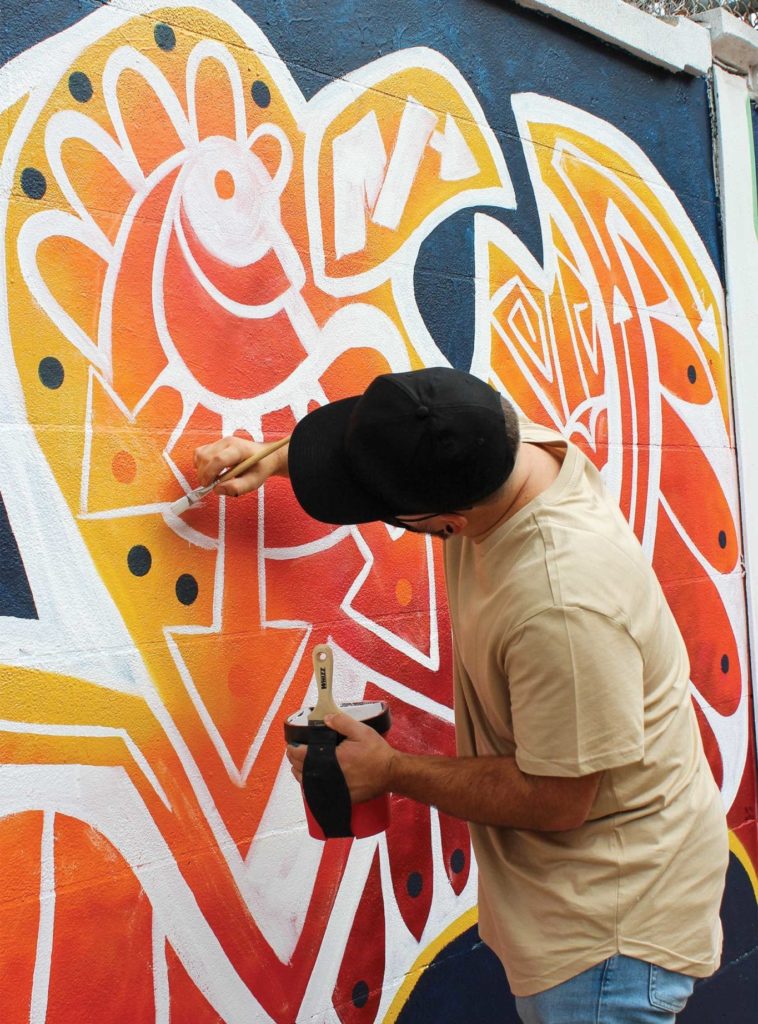
Last week, Massachusetts-based artists put the finishing touches on 20 new murals at the Punto Urban Art Museum in Salem. Inspired by Nina Simone’s song, “I Wish I Knew How It Would Feel to Be Free,” the works explore the quest for freedom that communities of color continue to pursue in the United States.
Located on Peabody Street in Salem’s El Punto neighborhood, the murals occupy a stretch of square walls that are painted anew by local artists each year. This is the first year that the artists have unified around a common theme: freedom.
“I’m originally from Salem. I used to live a street over from the street we’re painting on,” says Kimberly Barzola, now a Roxbury resident. “There’s always been a spirit and an excitement around culture coming directly from the community. The Urban Art Museum has done a great job of uplifting that creativity and energy that already existed.”
For many of the artists, these works are deeply personal. Jacob Ginga crafted an homage to his Native American ancestry in the form of a graphic orange eagle taking flight. Ginga also teaches art at Field Elementary School in Weston, Massachusetts. He’s using the project as an opportunity to discuss freedom with his students, asking each of them to draw what freedom means to them.
Painter Kedrin Frias is also an art teacher, but this project has allowed him the space to create a work for himself for the first time in a long time. As Frias touched up his intimate portrait of Nina Simone on the first wall of the street, the artistic fire was alight in his eyes. Frias had sketched many portraits of Simone before the museum began this project. The call for work inspired by Simone’s song felt like fate. In his black-and-white portrait, Simone’s face interplays with piano keys painted in the background, sometimes looking like her musical base and sometimes looking like prison bars.
Barzola painted a mural on the Peabody Street wall two years ago and returned this year with a powerful portrait of Tupac Katari and Bartolina Sisa, two indigenous revolutionaries who fought for freedom in 18th-century Peru, where her family is from. “I paint almost exclusively people from South and Latin America, showing us in strong and empowered positions and showing a lot of unity and strength,” says Barzola. “I think there’s a lot of strength that we can draw from our history and use to move us forward.”
The wall of local artists is a crucial part of El Punto, says Barzola. “I think that’s really important to make it feel like it’s for and by the community,” she says. “I want people to take away a sense of empowerment and pride.”










